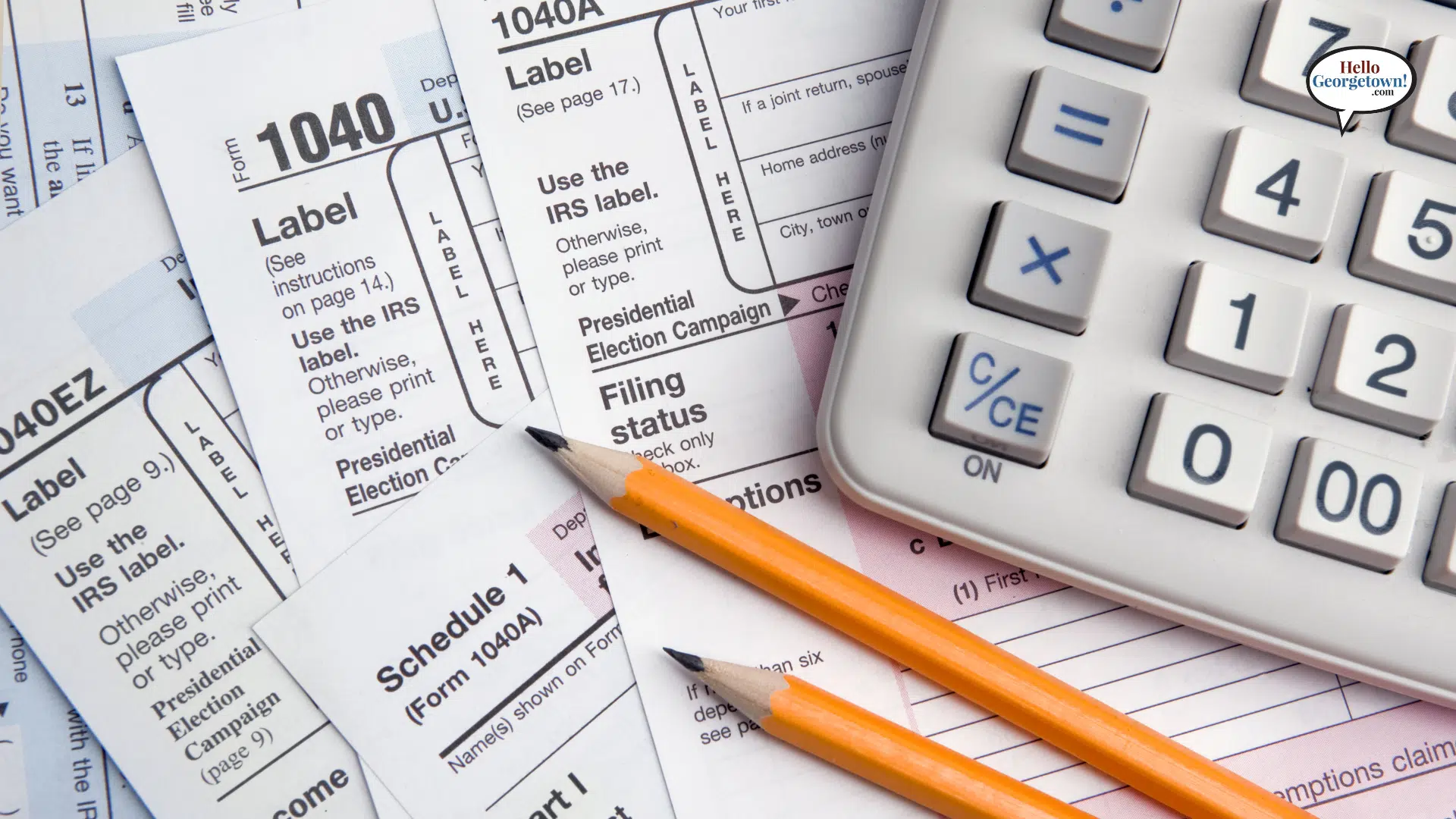via the Better Business Bureau
Tax season is in full swing, and many Texas residents are actively filing their taxes on their own or searching for a knowledgeable tax preparer to help them file their 2021 taxes. For the past few years, the typical tax-deadline date has been extended for Texas residents due to either the coronavirus pandemic or February 2021’s winter storm, causing some confusion on the deadline this year. Currently, there are no indications the IRS intends to extend this year’s deadline of April 18 for general tax returns.
The IRS continues to aggressively prosecute instances of criminal tax fraud across the nation, with $2.19 billion in tax fraud identified in 2021. Recently, the IRS has focused the efforts of its Criminal Investigations (CI) team on the exponential growth of cybercrime impacting the tax system, with $3.5 billion worth of cryptocurrency seized in 2021. The IRS states its CI team has seen increasing growth in the number of criminals using digital technologies to facilitate Stolen Identity Return Fraud (SIRF), COVID fraud and other refund fraud using the tax system to receive government payments. Instances of data loss originating from business email compromises, phishing scams and bank account takeovers have also increased.
As consumers gather their tax documents and make plans to file their 2021 taxes this year, Better Business Bureau expects an increase in rates of IRS impostor scams, phishing scams and ghost tax preparer scams.
IRS Impostor and Phishing Scams
Impostor scams remain one of the most common scams affecting Texas residents, with nearly 50,000 reports submitted to the FTC in the first three quarters of 2021. Impostor scams are the No. 1 most-reported scam across the U.S. in 2021 and account for the most money loss. The IRS reports that consumers lost over $1.6 billion in 2021, more than the following five most-reported scams combined. While only 15% of reports indicate a loss of money occurred, those providing money to scammers lose a median amount of $1,000.
While IRS impersonation scams are typically carried out through unsolicited phone calls, scammers also use email to communicate with a potential victim. Favored targets of scammers include individuals who possess a ‘.edu’ email address. The email often displays the IRS logo and encourages recipients to verify their tax refund payment through a provided link, which requests the taxpayer provide personal information such as their Social Security number, date of birth and current address. In reality, the website is a phishing scam, and the information provided could lead to identity theft or Stolen Identity Return Fraud.
Remember, the IRS will never:
- Demand immediate payment using a specific payment method such as a prepaid debit card, gift card or wire transfer.
- Threaten to immediately contact local police or other law enforcement to have the taxpayer arrested for not paying.
- Demand that taxes be paid without giving taxpayers the opportunity to appeal the amount owed.
Unexpectedly call about a tax refund. - Send emails about your tax refund or sensitive personal information.
- Initiate contact with taxpayers by email, text message or social media to request personal or financial information.
Ghost Tax Preparer Scams
A ghost preparer is an individual who advertises themselves as a professional tax preparer, often guaranteeing a significant tax return when using their services. However, the preparer either refuses or conveniently “forgets” to sign the return they created on behalf of a client.
By federal law, anyone paid to prepare, or assists in preparing, a federal tax return must have a valid Preparer Tax Identification Number (PTIN). Tax preparers are required to sign and include their PTIN on any returns they create on behalf of a paying customer. Businesses or individuals refusing to sign a return is a red flag that they may be fraudulent, leaving the consumer to deal with the IRS in the aftermath of an illegitimate or incorrect filing. Filing a valid, accurate tax return is ultimately the taxpayer’s responsibility, emphasizing the importance of choosing a credible tax preparation professional.
It is important to carefully analyze a chosen tax preparation business due to the sensitive personal information provided by consumers, such as SSN, bank account information, home address and financial assets. BBB recommends consumers spend the time to research tax preparation professionals to determine their credibility and legitimacy. The IRS provides a directory service that lists preparers in a searchable area who currently hold professional credentials recognized by the IRS. Additionally, use available resources, such as BBB.org, to search for accredited tax preparation businesses.
Individuals who have been impacted by tax preparer misconduct can file a report with the IRS at IRS.gov/tax-professionals and are encouraged to file an official complaint on the business’s BBB Business Profile, as well as submit a report to BBB Scam Tracker.
For more information about how to avoid tax scams and choose the right tax preparer, visit BBB.org/TaxTips.




 Business Directory
Business Directory Add Your Business
Add Your Business Job Board
Job Board Guides and Features
Guides and Features Tech Tip Tuesday with Computek
Tech Tip Tuesday with Computek Education Spotlight with Huntington Learning Center
Education Spotlight with Huntington Learning Center A+ Roofing Tips from APEX Roofing
A+ Roofing Tips from APEX Roofing Restaurants in Georgetown, TX
Restaurants in Georgetown, TX Dog Friendly Establishments in Georgetown, TX
Dog Friendly Establishments in Georgetown, TX Adopt a Pet in Georgetown, Texas
Adopt a Pet in Georgetown, Texas Holiday Guides
Holiday Guides Festival and Events in Georgetown, TX
Festival and Events in Georgetown, TX Downtown Georgetown Guide
Downtown Georgetown Guide Local Assistance
Local Assistance Churches in Georgetown, TX
Churches in Georgetown, TX Summer Camps in Georgetown, TX
Summer Camps in Georgetown, TX Swimming in Georgetown, TX
Swimming in Georgetown, TX Coming Soon
Coming Soon Events
Events Add Your Event
Add Your Event Live Music in Georgetown
Live Music in Georgetown Southwestern University Athletics
Southwestern University Athletics Newsletter
Newsletter Newsletter Archive
Newsletter Archive Subscribe
Subscribe Submit Your Photo
Submit Your Photo 2024 Georgetown's Best Awards
2024 Georgetown's Best Awards








Comments